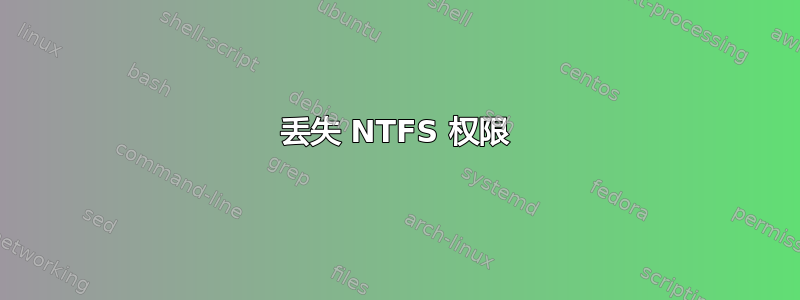
因此,我一直在尝试在磁盘实用程序的 GUI 中自动挂载我的 NTFS HDD,除了我丢失了对它的所有写入/执行权限之外,它工作得很好。我是 Linux 新手,所以我不知道我在做什么。我试图撤消自动挂载,但这并没有解决问题。我正在使用 UBUNTU 20.04 学习 C++ 编码,我的所有项目都保存在该硬盘上。而且由于我不能再写入它,我也不能继续编码……我有两个用户,一个是我最初在 Ubuntu 中创建的,另一个是我每天使用的。两个用户都是管理员。另外,我有某种与 Windows 10 的双启动器(我之所以说某种,是因为我不知何故搞砸了安装,现在要启动到 Windows,我必须在重新启动时按下 F12 键,然后从 BIOS 启动选项中选择 Windows 启动管理器:((。)我正在使用联想 ThinkPad x240,配备 m.2 sata 125 GB SSD,在 Windows 和 Ubuntu(2 个不同的分区)之间共享,问题驱动器是 500 GB 的 HDD,在 Windows 中使用 NTFS 格式化。
这是 Mirabeu 询问的命令的输出:
xmrsediboss@xMrSediBoss-ThinkPad-X240:~$ cat /etc/fstab
# /etc/fstab: static file system information.
#
# Use 'blkid' to print the universally unique identifier for a
# device; this may be used with UUID= as a more robust way to name devices
# that works even if disks are added and removed. See fstab(5).
#
# <file system> <mount point> <type> <options> <dump> <pass>
# / was on /dev/sdb5 during installation
UUID=c24bfc94-09f0-48ab-a6d2-12cddb6a4c7b / ext4 errors=remount-ro 0 1
# /boot/efi was on /dev/sdb2 during installation
UUID=34CD-DCB3 /boot/efi vfat umask=0077 0 1
/swapfile none swap sw 0 0
/dev/disk/by-uuid/C802883602882B8E /mnt/C802883602882B8E auto nosuid,nodev,nofail,x-gvfs-show 0 0


